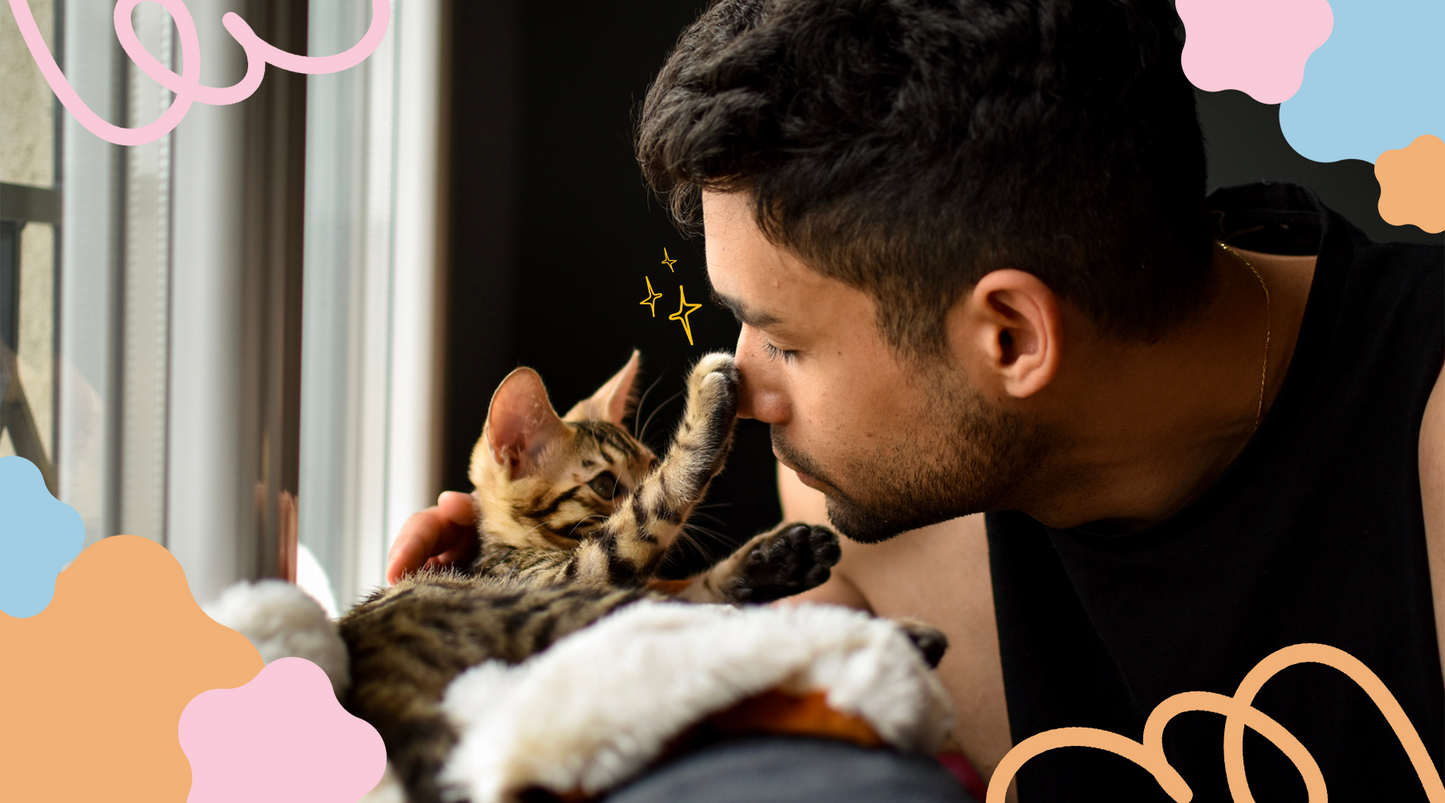
In the world of pets, cats are known for their independent nature. However, socialization plays a crucial role in shaping a cat's behavior, especially when it comes to interacting with humans and other animals. This article will delve into the intricacies of making sure your cat is properly socialized, providing valuable insights for both new and seasoned cat owners. Whether you're dealing with a new purebred kitten, a rescued feral cat, or simply want to improve your pet's social skills, this guide is for you.
What is Cat Socialization?

Socializing a cat refers to the process of acclimating a cat to various experiences, environments, and beings. This includes other animals, people, and even different sounds and smells. The goal is to help the cat feel comfortable and safe in various situations, reducing fear and aggression.
Socialization is a critical aspect of a cat's development. It's during this time that a cat learns about its environment and how to interact with it. The experiences a cat has during its socialization period can significantly impact its behavior later in life.
Why is Socialization Important for Cats?

Socialization is vital for cats and kittens, as it helps them adapt to different environments and situations. A socialized cat is less likely to exhibit behavioral problems such as aggression or fear. It also makes veterinarian visits, grooming, and interactions with other animals easier.
A well-socialized cat is typically more relaxed, friendly, and less likely to be fearful or aggressive. They are more likely to get along with other pets, are easier to handle, and are less likely to exhibit problem behaviors. Unsocialized cats tend to be anxious, timid, or even aggressive, toward new people and situations. They can also exhibit unwanted behaviors such as constantly hiding, marking territory with urine, or biting and scratching.
When Should Cat Socialization Begin?

The prime time for socializing your cat is during the kitten stage, specifically between 2 and 7 weeks old. During this period, kittens are more receptive to new experiences and can learn quickly. This is often referred to as the sensitive period.
During this time, kittens are learning about the world and forming their first impressions of what is safe and what is dangerous. This is the perfect time to expose them to as many people, animals, and experiences as possible. That way, your future cat is comfortable with people in a wide variety of environments, and won't be among the shy cats that dive for the space under your bed when anyone comes over.
How to Socialize a New Cat?

Bringing a new cat into your home requires patience and understanding. Start by giving the cat its own space where it can feel safe. Gradually introduce the cat to other members of the household, both human and animal. Remember to take it slow and let the cat set the pace. They way cats begin to feel safe is to take time to get familiar with the scents of other people and animals, and to leave their own scent by rubbing or scratching, in order to understand shared territory.
When introducing a new cat to your home, it's essential to make them feel safe and secure. Start by providing them with their own space, such as a separate room or a quiet corner of the house with their own cat food, litter box, and water bowl. This will give them a chance to adjust to their new surroundings at their own pace and leave their scent around, before trying to introduce pets or children.
What About Feral Cats?

Socializing feral kittens or a cat rescue can be a challenging but rewarding experience. The process is similar to socializing a new cat, but it may require more time and patience. It's important to remember that each feral cat is unique and may respond differently to the same efforts.
Feral cats, especially those that have had little to no contact with humans, can be more challenging to socialize than kittens or cats that have been around humans from a young age. However, with patience, consistency, and a gentle approach, it is possible to socialize these cats and help them adjust to living with humans.
Keep in mind that some feral kittens may not have all the habits of adult cats if they have been removed from their mother too soon. Kittens learn elimination and grooming habits from the mother cat. It's helpful in these cases to show videos of cats grooming and eliminating to encourage mimicry, or other cats may also offer a good example.

Different cat breeds are known for vastly different temperaments. Research the cat behavior your purebred kitten is known for, and keep in mind that each cat comes with their own personality. For example, you may have a Bengal cat known for their energetic personality, but your individual cat may still need a larger amount of socialization.
How Can I Encourage Social Behavior in My Cat?

Rewarding your cat for social behavior can go a long way in encouraging it. This can be done through treats, praise, or petting. Make sure to reward the cat immediately after the desired behavior to reinforce the connection.
Positive reinforcement is a powerful tool in encouraging desired behaviors in cats. When your cat displays a behavior you want to encourage, such as approaching you or playing nicely, reward them with a treat, praise, or a favorite toy. This will help them associate the behavior with positive outcomes, making them more likely to repeat it in the future.
They way you approach your cat is also important. In general, it helps to start by offering a hand for your cat to smell and get to know you. From there, you can attempt to pet the cat. If its accepted, give your cat a treat, and progress from there.
What Should I Avoid During Cat Socialization?

Avoid forcing interactions or rushing the process. This can cause stress and fear, hindering the socialization process. It's also important to avoid punishment as it can create a negative association with the socialization process.
It's important to remember that socialization should be a positive experience for your cat. Forcing interactions or rushing the process can cause stress and fear, which can hinder the socialization process. Instead, let your cat set the pace and always respect their boundaries.
Can Adult Cats Be Socialized?

While it's easier to socialize kittens, adult cats can also learn to be more social. The process may take longer and require more patience, but with consistent effort, it's possible to improve an adult cat's social skills.
Socializing an adult cat can be a bit more challenging than socializing a kitten, but it's certainly not impossible. The key is to be patient and consistent. It's also important to remember that each cat is unique, and what works for one cat may not work for another.
What Role Does Play Have in Cat Socialization?

Play is a powerful tool in cat socialization. It can help build trust, reduce fear, and encourage positive interactions. Incorporate play into your socialization efforts for the best results.
Playing with your cat is not only a great way to bond, but it can also help with socialization. Play allows your cat to interact with you in a positive way, and it can also help them become more comfortable with being touched and handled.
How to Socialize a Cat with Other Cats?

Introducing a new cat to other cats in the household can be a delicate process. It's important to take it slow and allow each cat to adjust at their own pace. Start by keeping the cats separate and gradually introduce them to each other's scent. Once they seem comfortable with this, you can start to allow supervised face-to-face interactions.
How to Socialize a Cat with Dogs?

Cats and dogs can live together harmoniously, but it often requires careful socialization. Start by keeping the cat and dog separate and gradually introduce them to each other's scent. When they seem comfortable with this, you can start to allow supervised face-to-face interactions. Remember to always prioritize the safety and comfort of both animals.
How to Socialize a Cat with Children?

Children can be a bit overwhelming for cats, especially if they're not used to them. Teach your children how to interact with cats respectfully and gently. Encourage them to be calm and quiet around the cat and to always handle the cat gently. It's also important to supervise interactions between cats and young children to ensure the safety of both.
How to Socialize a Cat with Visitors?

Having visitors over can be stressful for a cat, especially if they're not used to it. You can help your cat adjust by providing a safe space where they can retreat if they feel overwhelmed. Encourage your visitors to ignore the cat initially, allowing the cat to approach them when they feel comfortable.
How to Socialize a Cat with a New Environment?

Moving to a new environment can be stressful for a cat. You can help them adjust by setting up a safe space with familiar items like their bed, toys, and litter box. Allow them to explore the new environment at their own pace and provide plenty of reassurance and comfort.
In conclusion, cat socialization is a crucial aspect of feline care that can significantly impact a cat's behavior and overall well-being. It's a process that requires patience, understanding, and consistency. Here are some key points to remember:
- The prime time for socialization is during the kitten stage, but adult cats can also be socialized.
- Socialization involves exposing a cat to a variety of experiences, environments, and beings to help them feel comfortable and safe.
- Positive reinforcement, such as treats, praise, or petting, can encourage social behavior.
- Avoid forcing interactions or rushing the process as it can cause stress and fear.
- Play is a powerful tool in cat socialization as it can help build trust, reduce fear, and encourage positive interactions.
- When introducing a new cat to other pets or people in the household, it's important to take it slow and allow each party to adjust at their own pace.
- Always prioritize the safety and comfort of the cat during the socialization process.
Socializing a cat, whether it's a new kitten, a rescued feral cat, or an adult cat that needs to learn new social skills, is a rewarding process. It can strengthen the bond between you and your cat, make handling easier, and improve your cat's quality of life. Remember, every cat is unique, and what works for one may not work for another. Always respect your cat's boundaries and let them set the pace for their socialization journey.
By understanding and implementing proper socialization techniques, you can help your cat become a well-adjusted, confident, and happy member of your family. Whether you're a new cat owner or a seasoned feline enthusiast, we hope this guide has provided valuable insights into the art of cat socialization.
